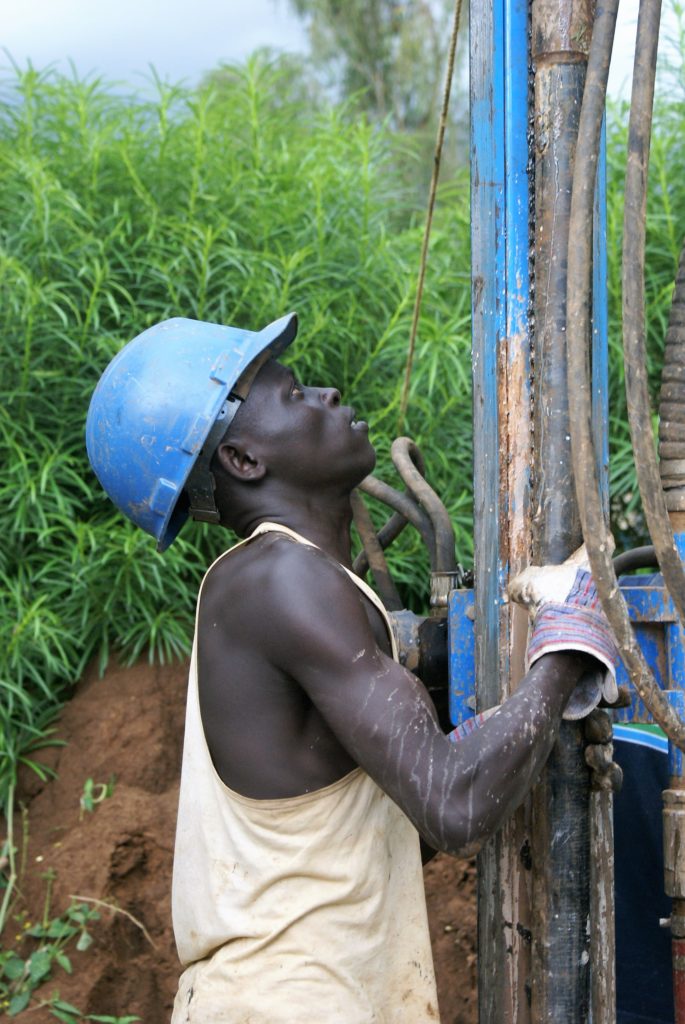In 2008 we drilled a well in Mwitanzige located in an arid area of Uganda. The villagers were walking 4 Kms (about 2.5 miles) to get water, and the children were missing school because of the time it took them to walk and then wait in a long line for their turn to fill their water containers. Through God’s good grace, CEED’s drillers hit an aquifer, an underground stream that never dries up. The local well committee charges a small fee, one or two cents a gallon, for each jerry can to be filled with clean water from the pump located in the middle of the village. People come to pump fresh water from before sunup to after sundown every day of the year. From the fees collected, the villagers have kept the pump in good working order, built a new, larger church, built shops, increased farm yields, and generally have raised the standard of living materially and spiritually. It’s a very significant demonstration of the real value of clean water in a poverty-stricken area when the water project is appropriately managed by the community.
– Graham Hodgetts – Board President


Children collecting dirty water from a local waterhole
CEED’s Water Solutions for Africa is centered in the town of Hoima, which is in the Bunyoro-Kitara region in the Great Rift Valley geological system. CEED has been working in this region since 1999 and has made an in-depth study of the many factors that have resulted in a water and health crisis for this rural population.
The water crisis and the accompanying health crisis in Uganda are caused as much by cultural as physical reasons. In the past ten years the Ugandan Government and many well-known charities have drilled hundreds of wells throughout the rural regions, and yet the people are still without clean water. Water Solutions for Africa is taking a new approach to this problem with innovative engineering solutions and pilot projects which encourage communities to be proactive in solving their own water problems.
Our first task was to find a way to drill new wells (“boreholes”) for less than the typical $10,000 most non-governmental agencies charge. By using local labor provided by those who would benefit the most, and going back to simpler technologies, we have been able to reduce the average cost to less than $5000 per borehole.

"We challenge anyone to drill a water well in Uganda for less than we do!"
The CEED Board

Our next challenge was to employ a Ugandan manager to oversee all the new drilling, repair work and village committee communications. Our manager has trained a crew of Ugandan “water engineers” who refurbish inoperative wells and operate the hydraulic rig to develop new ones. To date (January 2019) we have drilled or rehabbed more than 350 boreholes, used by more than 400,000 people. And the team is still working.
Matthew 10:42 says, “And if anyone gives even a cup of cold water to one of these little ones because he is my disciple, I tell you the truth, he will certainly not lose his reward.” (NIV)